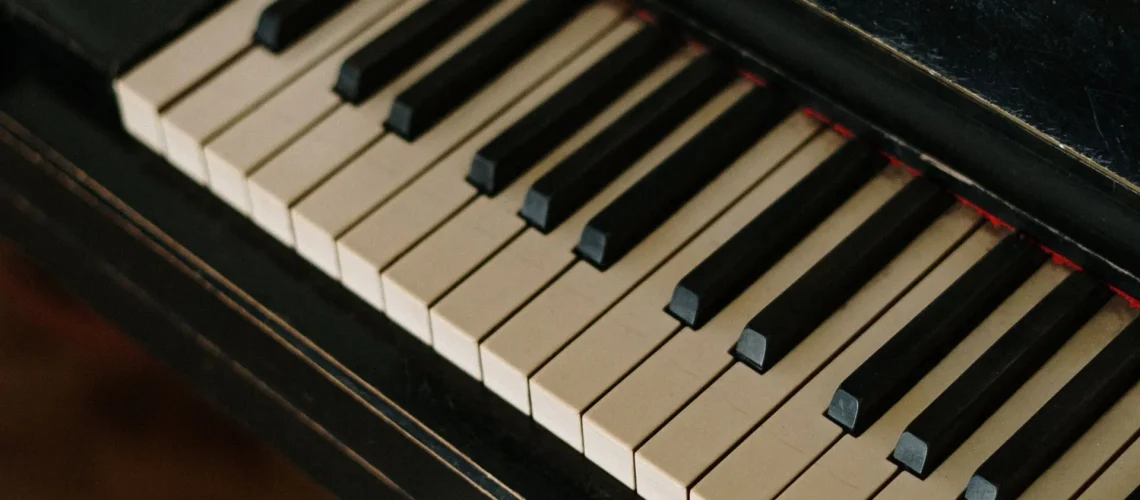An Interview with Ann Goldfinch
Music is an integral part of life and faith. Read the following interview with Ann Goldfinch of Raleigh to hear how she has found joy and purpose in sharing her musical abilities with others.
What’s your name? What church are you part of? How long have you lived in the triangle?
My name is Ann and I am the music director at Grace Lutheran Church in Raleigh. I was born in Raleigh and actually baptized at Grace when I was a child and grew up attending the church. My family joined when I was maybe 1 or 2 years old and I believe my older brother and I were baptized together. I went to UNC Chapel Hill for undergrad and grad school and then lived in Durham for a year before moving back to Raleigh so I’ve been in the triangle my entire life!
What musical instruments do you play?
I began studying piano around age 5 and studied all the way through college and graduate school. I began singing in choirs in elementary school and continued with that through college. I started private voice lessons in late middle school/high school to further my vocal development. In fact, I have a Bachelor of Music in vocal performance with a minor in piano performance and a Master of Arts in Teaching K-12 music. As a side note, I also have a Bachelor of Arts in Romance Languages (French), which complemented my voice degree nicely, as I frequently sang in other languages.
Outside of those main instruments, I was fortunate to attend magnet schools and was able to play violin in the school orchestra in elementary school, though I did not study that instrument beyond elementary school. As a music educator, I am licensed to teach general music, band, chorus, and orchestra so as part of my coursework, I learned how to play many instruments, though at this point in my career, I would need a big refresher if I taught band or orchestra! Like any elementary music teacher, I can play the recorder, too! Through my Orff Schulwerk training, I learned alto recorder in addition to the soprano recorder typically taught in 4th grade. And, of course, I can rock out on elementary classroom percussion instruments!
What difference does music make in your life?
Music has been part of my life since the beginning. My mother taught parent/child music through the an enrichment program on the weekends and I remember participating in her classes from time to time. While my parents are not musicians by training, ours was a musical house and my parents placed a high value on the arts. Giving us the opportunity to take music lessons and study dance and theatre was important to my parents and they worked hard to prioritize providing those educational experiences over giving us consumables, buying us fancy clothes, etc. For Christmas, we would get season tickets to a local theatre and then enjoy the gift of going to plays together throughout the year. My parents were active in the arts boosters at our school and served on boards of local community arts organizations. I am sure that helped shape my decision to pursue music as a career and I try to give my children similar experiences now that I am a parent.
What difference does music make in your faith?
So much of the canon of western choral music is rooted in the church, as the church was a major benefactor of western classical composers. As a result, I have spent much of my time in choirs, both at school and in the community, singing sacred choral music. For me, it is hard to find a more spiritual moment than when I am singing or listening to a great work of music composed for the church, classical, or otherwise (spirituals, contemporary sacred choral works, etc. can all elicit such responses).
In high school, I was fortunate to have the opportunity to travel out of the country multiple times on choir tours. Many of these trips took us to Europe, where I was able to sing in cathedrals and churches unlike what we have in this country. Those moments were magical and extraordinarily spiritual. The beauty of the music coupled with the beauty of the architecture and the acoustics create an atmosphere where it is hard not to feel connected to God and reflective on faith.
Additionally, composers are masters at text painting and taking an idea spelled out in prose and bringing it to life through music. One of my favorite things to do when I am studying scores to teach my choir is to look for those moments of text painting where the compositional techniques so deliberately bring the text to life. Perhaps it is because I am a musician by profession, but I cannot imagine worshipping without music. It is both a medium through which I reflect on my faith and one through which I can express my faith.
Want to find joy and purpose in music for yourself?
All of our Hope for the Triangle churches have music programs with various levels of skill and commitment required. Learn more through any of the links below!
Abiding Presence – Fuquay Varina


